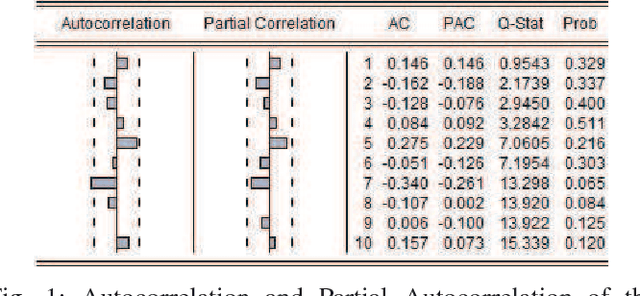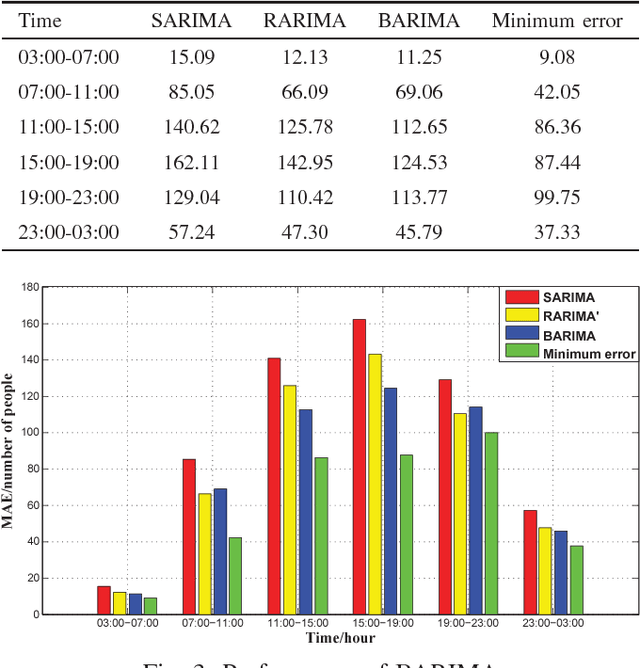Zhifang Miao
See the Near Future: A Short-Term Predictive Methodology to Traffic Load in ITS
Jan 08, 2017



Abstract:The Intelligent Transportation System (ITS) targets to a coordinated traffic system by applying the advanced wireless communication technologies for road traffic scheduling. Towards an accurate road traffic control, the short-term traffic forecasting to predict the road traffic at the particular site in a short period is often useful and important. In existing works, Seasonal Autoregressive Integrated Moving Average (SARIMA) model is a popular approach. The scheme however encounters two challenges: 1) the analysis on related data is insufficient whereas some important features of data may be neglected; and 2) with data presenting different features, it is unlikely to have one predictive model that can fit all situations. To tackle above issues, in this work, we develop a hybrid model to improve accuracy of SARIMA. In specific, we first explore the autocorrelation and distribution features existed in traffic flow to revise structure of the time series model. Based on the Gaussian distribution of traffic flow, a hybrid model with a Bayesian learning algorithm is developed which can effectively expand the application scenarios of SARIMA. We show the efficiency and accuracy of our proposal using both analysis and experimental studies. Using the real-world trace data, we show that the proposed predicting approach can achieve satisfactory performance in practice.
 Add to Chrome
Add to Chrome Add to Firefox
Add to Firefox Add to Edge
Add to Edge